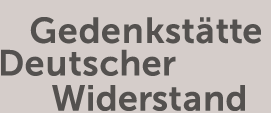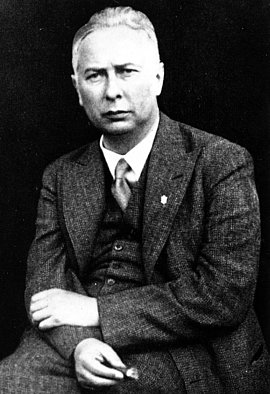German Resistance Memorial Center Biographie
Theodor Heuss
Theodor Heuss co-founded the German Democratic Party (DDP) in 1918 and represented it in the Reichstag from 1924 to 1933. A liberal politician and political journalist, he taught at the German Academy for Politics from 1920 until he was banned from teaching in 1933. He repeatedly warned against the Nazi movement in public speeches and in articles and books (Hitlers Weg, 1932). In a Reichstag debate in May of 1932, Theodor Heuss could discover “nothing but theoretical nonsense” in the National Socialists’ economic and currency agenda and said that the “Third Reich” would consist of “re-varnished and cleaned-up leftovers of the Wilhelmine era.” In 1933, however, he gave way to the majority of his parliamentary group, which approved the “Enabling Act” along with all other bourgeois parties. He was banned from publishing, which put an end to his public activities, but was employed by the liberal Frankfurter Zeitung under a pseudonym. He also worked on biographies, including on the theologian and politician Friedrich Naumann and the industrialist, engineer, and inventor Robert Bosch. He remained in contact with individuals active in the resistance, among them Julius Leber. After the end of the war he became minister of culture in Württemberg-Baden in 1945. He was co-founder and chairman of the liberal FDP party and was elected the first federal president in 1949. Theodor Heuss died in Stuttgart in 1963.


